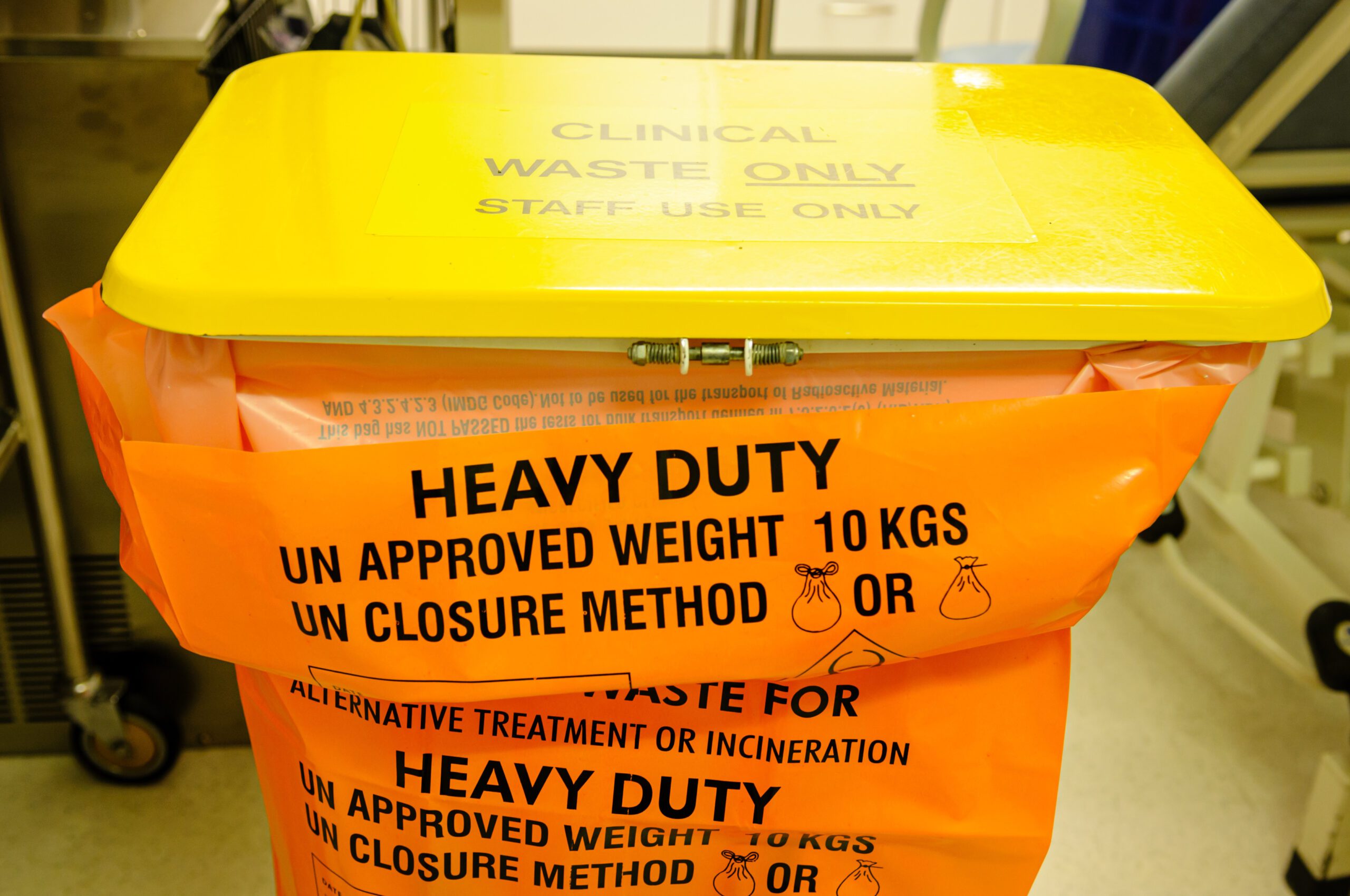
Adhering to and following microbiological waste disposal procedures is crucial to public health. Proper disposal of microbiological waste is essential to prevent the spread of disease and infectious outbreaks. The extreme risk the waste poses to human health and the environment is, in every sense of the word, very real. Improperly disposing of or mishandling microbiological waste can lead to catastrophic consequences—look no further than the COVID pandemic as to what can happen.
What is Microbiological Waste?
Microbiological waste, or biohazardous or biomedical waste, is those waste materials contaminated or exposed to potentially infectious microorganisms, such as viruses, bacteria, parasites, or fungi. Such waste is typically generated in healthcare and laboratory settings, research facilities, veterinary hospitals, and clinics during normal operations and procedures. Proper disposal procedures for microbiological waste protect against exposure to potentially hazardous and dangerous contaminants by the physicians, nurses, scientists, and personnel who work in facilities, along with the patients and visitors there and all service staff who handle the infectious material downstream.
How is Microbiological Waste Generated?
Microbiological wastes are generated in a variety of ways. Via cultures and specimens, for example, from Petri dishes, test tubes, vials, and other containers used to grow and transport microorganisms for diagnostic or research purposes. Sharps—needles, scalpels, objects used in medical procedures or laboratory work, and equipment like pipettes, centrifuge tubes, and glassware used in microbiological experiments or procedures.
Other examples of microbiological wastes can derive from contaminated human or animal tissues, body fluids, and pathological waste. Disposable materials like bandages, swabs, and dressings that have been in contact with infectious materials, as well as all the personal protective equipment (PPE)–the used gloves, gowns, masks, and other protective gear worn by hospital, clinical, and laboratory personnel.
Procedures for Microbiological Waste Disposal
Typically, microbiological waste is collected in specially labeled and color-coded containers, subject to strict regulations and guidelines for safe handling, transportation, and disposal. Though federal oversight and regulation is limited—the EPA primarily defers regulation to state environmental and health departments—the US Department of Transportation does specify packaging. It regulates transportation, and OSHA has established standards for handling and disposing bloodborne pathogens and diseases to protect employee health and safety.
For example, researchers of microbiological waste in Maine, in healthcare, research, and clinical facilities, are required to register as generators with the state’s Department of Environmental Protection. The DEP has packaging, labeling, handling, storage, transportation, disposal, and treatment requirements that must be adhered to by generators. Transporters of microbiological waste and owners of disposal and treatment facilities must be licensed. The disposal of untreated microbiological waste in Maine is against the law. Failure to comply can result in heavy fines and, if violations are intentional, the possibility of imprisonment.
General procedures for microbiological waste disposal begin with keeping it segregated from regular waste at the source. Use dedicated containers clearly labeled with the appropriate biohazard symbol to indicate and identify the microbiological waste. These containers should be leak-proof and have a tight-fitting lid or seal. Some waste can be subjected to sterilization through autoclaving or incineration. Other wastes will need to be transported. A licensed provider must transport microbiological waste from a facility to an off-site disposal and treatment center. All waste must be in properly labeled, leak-proof containers with detailed documentation.
Contact Maine Labpack for Hazardous Waste Disposal Solutions
Specific procedures for microbiological waste disposal can vary depending on the type of waste, the level of risk associated with the microorganisms, and regulations. To ensure compliance, Maine Labpack works with generators of microbiological waste to safely remove and dispose of these harmful materials from facilities. We are a licensed, reputable microbiological waste removal service company that offers comprehensive, no-contract microbiological waste disposal for healthcare, research, and clinical facilities throughout the state. We offer various services to dispose of microbiological waste, including onsite consultation, removal, and supply with containers for future pickups. For more information, contact Maine Labpack today.
